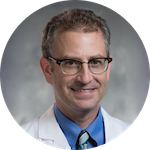HNS&CS Awarded R25 Training Grant
![Dr. Goldstein (center) works with two members of the Goldstein Lab: Jack Finlay, MD, PhD student [left], and Tiffany Ko, a Neurobiology graduate student [right]](/sites/default/files/styles/freeform_scaled/public/2023-04/ossp-e1655313453313_1.png?itok=y5GfFxjx)
The Duke Department of Head and Neck Surgery & Communication Sciences (HNS&CS) was recently awarded the R25 grant from the National Institutes of Health (NIH) and National Institute on Deafness and Other Communication Disorders (NIDCD) for the formation of the Otolaryngology Surgeon–Scientist career Path program (OSSP).
This R25 program funds research, educational and career development activities for medical students and otolaryngology residents focused on basic science and translational research careers. An overall goal of the program is to increase the number of academic surgeon–scientists who successfully combine research and clinical care in their careers.

“We’re thinking about the potential barriers on the pathway to being a surgeon–scientist that we can help our trainees overcome, as they make that transition from trainee to faculty.”
Bradley Goldstein, MD, PhD Vice Chair of Research for HNS&CS
How the OSSP Works
The OSSP will offer immersive research experience, mentorship in research training, and career development to residents who have matched into the seven-year otolaryngology track. Participants will be chosen based on their academic and research achievements and will be able to select a mentor from a group of highly qualified researchers from different primary departments at Duke.
“It’s a dedicated career development pathway,” says Bradley J. Goldstein, MD, PhD, Vice Chair of Research in the Department of HNS&CS. “During the first two years of the program, we’re meeting with the trainees to introduce them to potential mentors and making sure we’re talking about their broader and longer-term research interests.”
Each year will include two medical students and one resident, with the opportunities for projects focusing on basic, translational, or global health research. The medical students will follow an academic-year program with their mentors. After two years of clinical training, the residents will engage in a two-year mentored research block. Limited, tailored didactic work will cover biostatistics, research ethics, and professional development skills.
Following the research block, trainees will resume senior clinical residency rotations, while remaining engaged with research teams. The program will also emphasize efforts to help keep senior residents engaged in research projects during this busy time, as they focus on taking care of patients and honing their surgical skills.
Limiting Limitations
Partnering with other programs and offices at Duke, such as the Office of Physician Scientists Development, will allow residents another opportunity to obtain salary support for their own laboratory technician. Mentors will continue to be involved in trainees’ research and academic career development in otolaryngology as the trainees transition to their initial faculty position.
“[The trainees] can keep generating preliminary data for their projects, so when they’re in their first faculty position and ready to write their own grants they are positioned to succeed,” says Dr. Goldstein. “We’re thinking about the potential barriers on the pathway to being a surgeon–scientist that we can help our trainees overcome, as they make that transition from trainee to faculty.”
Dr. Goldstein is one of the Principal Investigators (PIs) for this program, along with Howard W. Francis, MD, MBA, Chair of the Department of HNS&CS.
“We do not want to limit people,” says Dr. Goldstein. “Whatever you are interested in, related to head and neck surgery and communication sciences, we can try and find you an appropriate mentor to help you cultivate that interest by leveraging expertise available at Duke.”